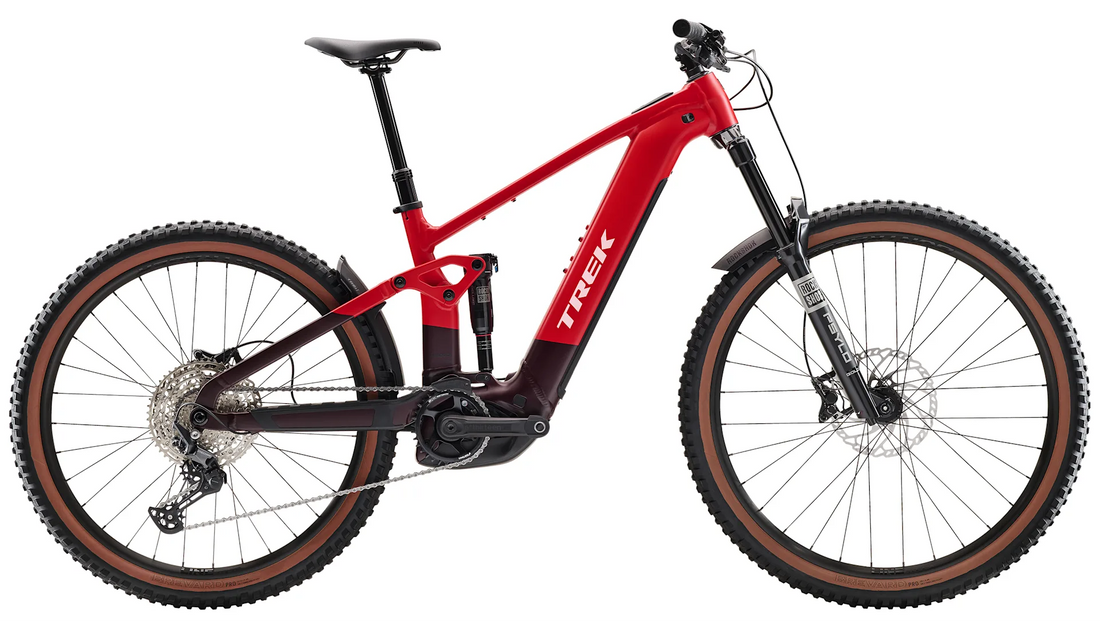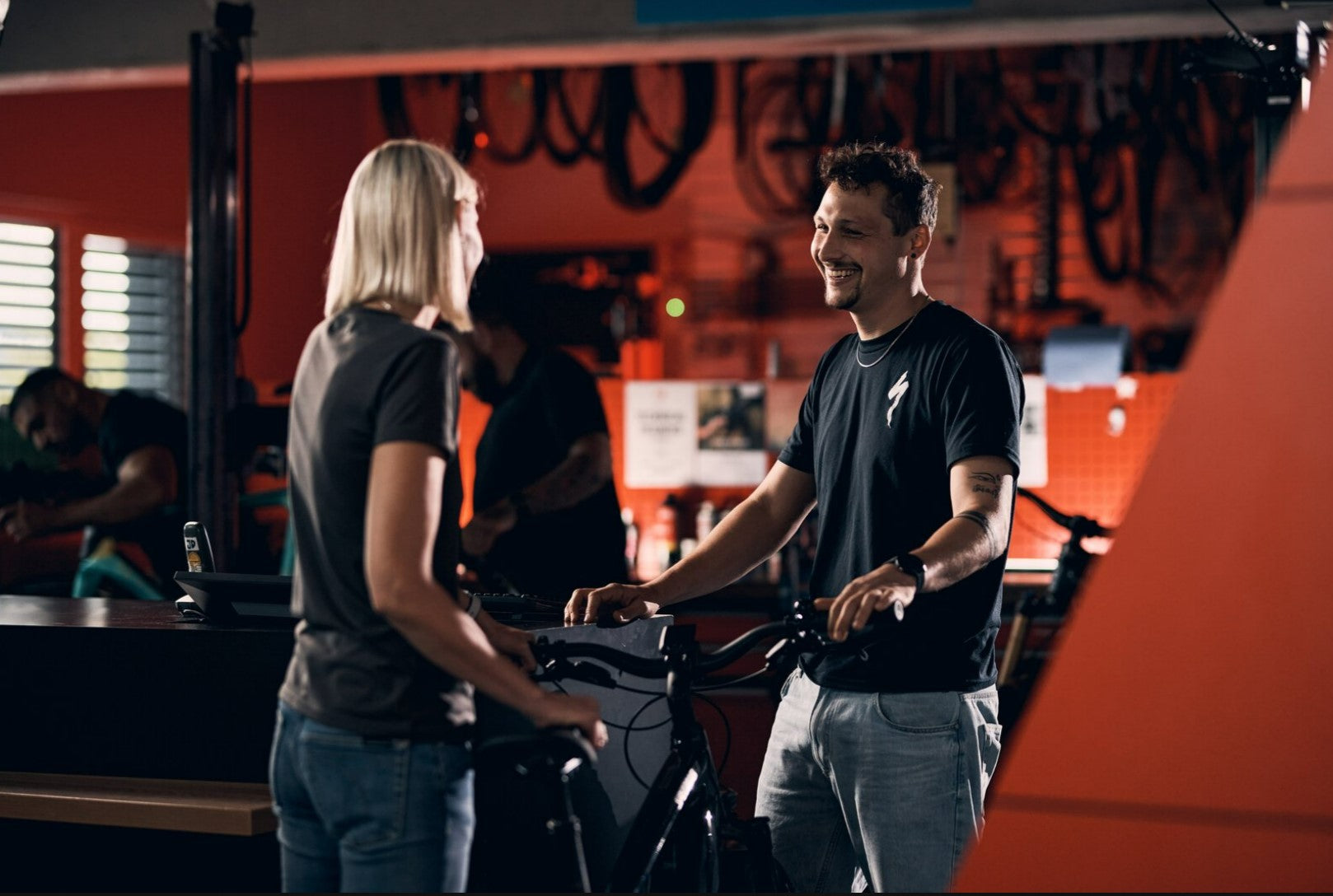
Bike fitting: What should you pay attention to when adjusting your bike?

A properly adjusted bike is crucial for riding comfort and performance. Here you will find detailed information about bike fitting:
I. Saddle height and position
The correct saddle height is crucial for efficient power transmission. Make sure your leg is slightly bent when the pedal is fully depressed. The horizontal saddle position influences the forward lean and thus the back posture.
Tip: Experiment with small adjustments to find the optimal position.
II. Handlebar height and width
The handlebar height affects your upper body position and therefore the pressure on your hands and arms. The handlebars should be a comfortable width to relieve the strain on the shoulders.
Tip: A handlebar position that is tilted slightly downwards is often more comfortable and aerodynamic.
III. Pedal position and crank length
The correct pedal position minimizes stress on the knees and ankles. Make sure your feet are parallel to the pedals. The correct crank length improves the efficiency of your pedal movements.
Tip: If you are unsure, seek advice from a professional bicycle mechanic.
IV. Shoe and cleat position
The correct position of shoes and cleats influences power transmission and prevents possible foot problems. Make sure your shoes are adjusted correctly and the cleats are positioned in the middle of the shoe sole.
Tip: Test different positions to find the most comfortable and efficient one for you.
Bike fitting is an ongoing process. If you use your bike regularly, it may be worth adjusting the settings to meet your body's changing needs.


